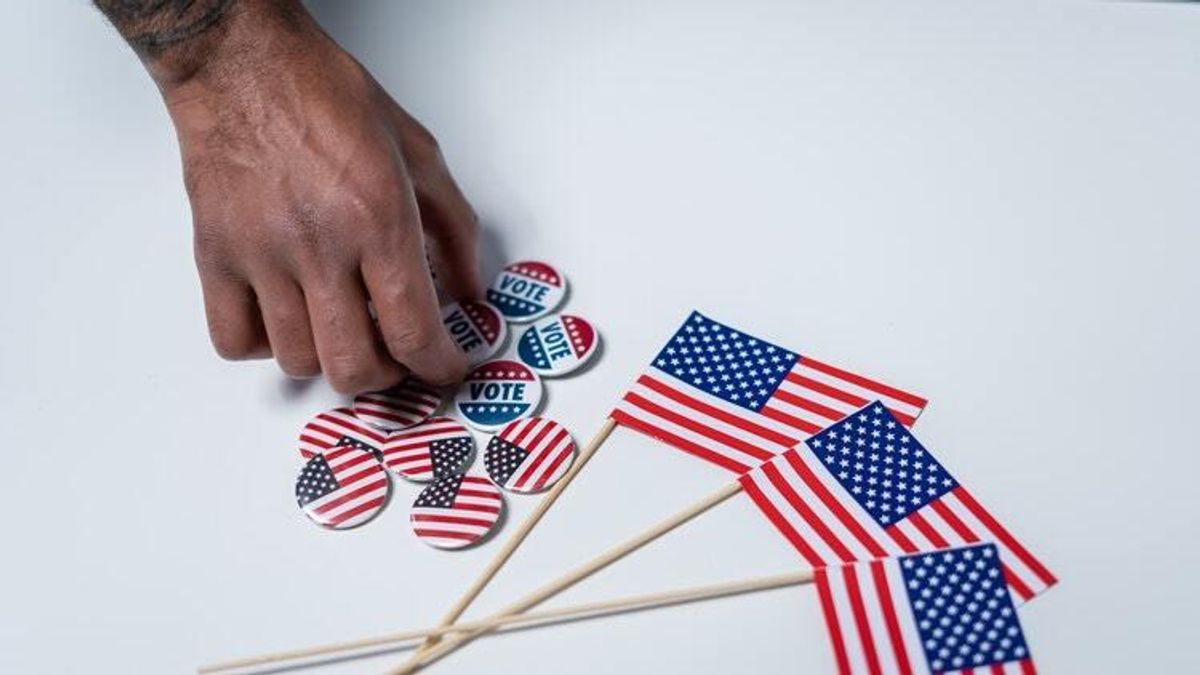Voters of color, including those who are LGBTQ, are favoring a vote-by-mail option for the November 3 election, according to a new survey by the Human Rights Campaign Foundation, HIT Strategies, and partner organizations.
They also predict that the COVID-19 pandemic and the protests following the death of Black man George Floyd at the hands of Minneapolis police will affect who votes in the election.
And a plurality of those surveyed feel hopeful about the presidential election, but substantial percentages report feeling anxious, nervous, or discouraged. A significant number are worried about the integrity of the voting process.
The survey was conducted online from June 29 to July 10 by research firm HIT Strategies on behalf of the HRC Foundation, the educational arm of the Human Rights Campaign. The HRC Foundation also partnered with the Latino Victory Foundation, the NAACP, UnidosUS, and Woke Vote for the effort. Eight hundred African-American, Latinx, and Asian-American/Pacific Islander votes from a variety of rural and urban locales and with a variety of political affiliations were surveyed. Research will continue to be conducted and results will continue to be released through November.
Leaders of the organizations will discuss the initial findings tonight at 7:30 Eastern in a livestreamed panel moderated by Jamal Simmons, a CBS News political analyst and host of #ThisIsFYI on IGTV. The participants will be HRC Foundation President Alphonso David, NAACP President Derrick Johnson, UnidosUS President and CEO Janet Murguia, and Latino Victory Foundation President and CEO Nathalie Rayes. The event, held on the 55th anniversary of the Voting Rights Act, can be viewed on YouTube and Facebook. RSVP here.
One of the key findings is the 80 percent of all respondents and 80 percent of LGBTQ ones would like to see their states offer a vote-by-mail option for the election. Sixty percent of the total said they plan to vote by mail or vote early in person, but 75 percent of the total and 79 percent of those who are LGBTQ said they're likely to vote by mail if there is no cure or vaccine for the coronavirus by November.
That's despite the concerns some raised about voting by mail. When asked what might make them give them pause about voting by mail or make them oppose it, , 40 percent of LGBTQ respondents cited the fear that ballots could be lost or not counted, and 36 percent of LGBTQ them said fraud. In reality, and contrary to some of Donald Trump's rhetoric, there is very little fraud associated with voting by mail.
However, more respondents saw advantages in voting by mail. Asked about factors that give them confidence in the process or make them support it, 62 percent of LGBTQ participants agreed that "Vote by mail is a safer, healthier alternative to vote during COVID-19." Majorities also agreed that mail-in voting offers more flexibility than in-person voting and would help them avoid long waits at polling places, broken machines, and other factors that often end up suppressing the vote of marginalized populations.
When presented with a list of words and asked to select the one that best expresses how they feel about the presidential election, 32 percent of all respondents chose "hopeful," as did 29 percent of LGBTQ participants. Black voters had the highest percentage choosing "hopeful" of any subgroup, 41 percent. Of the total sample, 14 percent chose "anxious," and 13 percent "worried," and another 13 percent "discouraged."
Still, those surveyed are concerned about the integrity of the voting process. Forty-one percent of the total and 47 percent of the LGBTQ portion said they are "not too confident" or "not confident at all" that the presidential election will conducted fairly and accurately.
Large percentages said that current events will affect who votes in the election. Seventy-six percent of the total and the same percentage of LGBTQ participants said the coronavirus crisis will affect who votes, while 73 percent of the total and 76 percent of those who are LGBTQ said the protests following Floyd's death will.
"Voters across the country this fall will be facing unprecedented challenges in how to safely make their voices heard in the pivotal election ahead," HRC Foundation President Alphonso David said in a press release. "As these results show, voters are hopeful, resilient, and ready to cast their votes this November -- from the ballot box to the mailbox. Along with our partners, the Human Rights Campaign Foundation looks forward to educating and empowering voters in how they can safely and effectively have their say in the future of our democracy."
View the full survey results here.


















































































